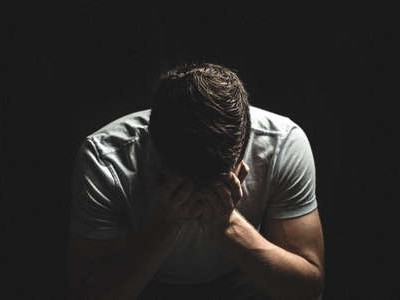
Depression Types Psychologist Mermaid Beach (07) 5539 9798
Depression Psychologist Mermaid Beach

Introduction: My Depression Is Getting Worse Psychologist Mermaid Beach Near Me
Anxiety and depression are two of the most typical mental health disorders that people face today. While they might seem like different conditions, they are frequently interconnected and can have a considerable effect on a person's total well-being. In this post, we will check out the connection in between stress and anxiety and depression, the signs connected with each condition, and what steps surfersparadisechiropractic.com.au people can take to handle and conquer these challenges.
Understanding Stress and anxiety and Depression
What is Anxiety?
Anxiety is a natural reaction to tension or threat. It is characterized by sensations of anxiousness, worry, and fear about everyday circumstances. While it is regular to experience stress and anxiety from time to time, persistent stress and anxiety can hinder everyday activities and impact one's quality of life.
What is Depression?
Depression, on the other hand, is a state of mind condition that affects how you feel, think, and manage daily activities. It surpasses regular feelings of unhappiness or sorrow and can persist for weeks, months, and even years. Depression can make it tough to work in different areas of life, consisting of work, relationships, and self-care.
The Connection In Between Anxiety and Depression
Anxiety and depression often go hand in hand. Many people who experience anxiety also struggle with symptoms of depression, and vice versa. The link in between the 2 conditions can be credited to a number of factors:
Chemical Imbalance: Both stress and anxiety and anxiety are believed to involve an imbalance of neurotransmitters in the brain, such as serotonin and dopamine.
Shared Genetic Aspects: Research recommends that there may be a hereditary predisposition for developing both anxiety and depression.
Stressful Life Occasions: Distressing experiences or considerable life events can trigger both anxiety and depression symptoms.
Negative Believing Patterns: People with anxiety tend to have negative ideas and stress exceedingly about future occasions. These believed patterns can contribute to the advancement of depression.
Physical Symptoms: Anxiety and depression can manifest with comparable physical symptoms, such as tiredness, sleep disruptions, and modifications in appetite.
Symptoms of Anxiety
Anxiety can manifest in different methods and might provide different symptoms in each person. Some common signs of anxiety include:
Excessive Concern: Consistent and excessive fretting about everyday situations, even when there is no evident factor for concern.
Restlessness: Feeling on edge or unable to relax, often accompanied by physical manifestations like trembling or fidgeting.
Difficulty Focusing: Problem focusing or staying present due to racing thoughts or preoccupation with worry.
Irritability: Feeling easily irritated or agitated, in some cases without a clear cause.
Sleep Disruptions: Sleeping disorders or uneasy sleep due to racing ideas or worries.
Physical Symptoms: Anxiety can likewise manifest physically, leading to signs such as fast heartbeat, shortness of breath, lightheadedness, or gastrointestinal issues.
Symptoms of Depression
Depression can differ in intensity and discussion from person to person. Some typical symptoms of anxiety include:
Persistent Unhappiness: Feeling sad, empty, or helpless for an extended duration, typically accompanied by tearfulness.
Loss of Interest: Losing interest in activities once taken pleasure in and experiencing a lack of motivation.
Changes in Cravings: Significant weight-loss or gain due to changes in cravings or consuming habits.
Fatigue: Feeling worn out and lacking energy, even after getting adequate sleep.
Difficulty Concentrating: Problem focusing, making choices, or remembering details.
Suicidal Ideas: In extreme cases, depression can cause ideas of self-harm or suicide. It is important to seek assistance if you experience these thoughts.
How to Handle Anxiety and Depression
Managing stress and anxiety and depression requires a thorough method that attends to both the physical and emotional aspects of these conditions. Here are some methods that can help:
Seek Expert Help: Speak with a mental health specialist, such as an anxiety psychologist in Surfers Paradise, who can offer an accurate diagnosis and develop a customized treatment plan.
Medication: In some cases, medication may be prescribed to help handle signs of anxiety and depression. A qualified healthcare provider can determine if medication is necessary.
Therapy: Cognitive-behavioral therapy (CBT) and other evidence-based treatments can assist people recognize unfavorable thought patterns, establish coping systems, and enhance general wellness.
Self-Care: Participate in activities that promote self-care, such as regular exercise, practicing relaxation strategies (e.g., deep breathing or meditation), ensuring sufficient sleep, and preserving a well balanced diet.
Social Support: Reach out to pals, family, or support groups who can supply understanding and support throughout difficult times.
Avoid Substance Abuse: Drug abuse can intensify signs of stress and anxiety and anxiety. It is essential to avoid self-medicating with drugs or alcohol.
Frequently Asked Questions
- Anxiety is identified by excessive worry and fear about everyday scenarios, while depression involves persistent sensations of sadness or despondence that impact everyday functioning.
- Yes, anxiety is considered a mental illness when it interferes with life and causes significant distress.
- Signs of depression in males may include irritability, anger or hostility, increased risk-taking behavior, drug abuse, or physical symptoms like headaches or digestion issues.
- While there is no definitive remedy for anxiety and anxiety, they can be efficiently managed and treated with the ideal mix of treatment, medication, and self-care strategies.
- Yes, anxiety is a mental illness defined by relentless feelings of unhappiness, despondence, and a loss of interest in activities when enjoyed.
- Offer support and encouragement, listen without judgment, and encourage them to look for expert aid. Educate yourself about their conditions to better comprehend their experiences.
Conclusion
Anxiety and anxiety are intricate conditions that typically exist side-by-side and can substantially impact an individual's well-being. Understanding the connection in between these 2 conditions is crucial for efficient treatment and management. By seeking expert assistance, practicing self-care, and building a strong support group, people can take actions towards overcoming stress and anxiety and anxiety and regaining control over their lives. Keep in mind that you are not alone in this journey, and there is wish for a brighter future.
Depression Disease Psychologist Mermaid Beach
Overcoming Anxiety And Depression Psychologist Mermaid Beach Near Me
Isabella Whittingham Registered Psychologist Gold Coast
Surfers Paradise Chiropractic Centre-Dr. Bruce Whittingham
12 Thomas Drive, Surfers Paradise QLD 4217
(07) 5539 9798
https://surfersparadisechiropractic.com.au
Depression With Anxiety Psychologist Mermaid Beach Near Me